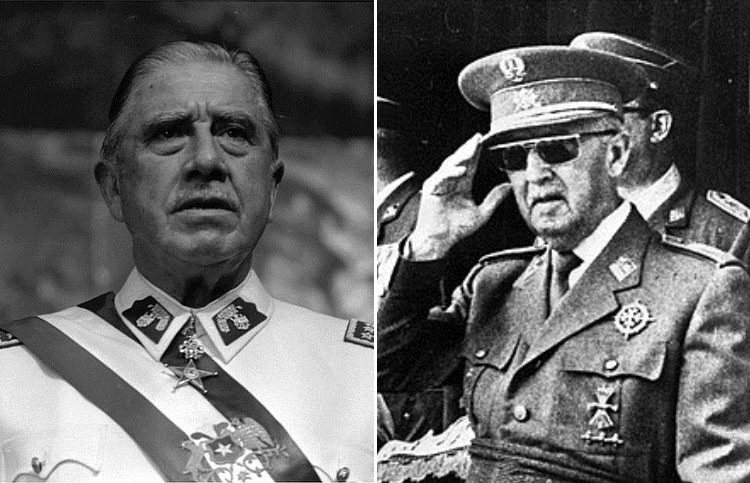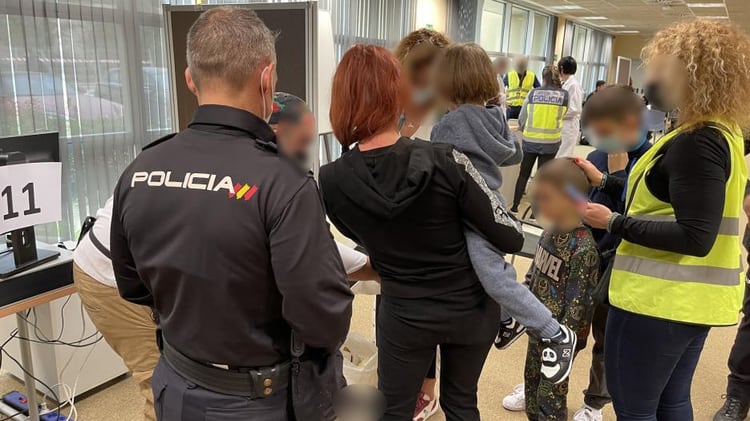Eduardo González
Former Chilean president Augusto Pinochet was not only one of the very few heads of state who attended Francisco Franco’s funeral in November 1975, but also took advantage of his stay in Madrid to plot with one of the most dangerous fascist terrorists of the moment, the Italian Stefano delle Chiae, the assassination of an opposition leader living in Spain.
Unlike what happened at the coronation of Juan Carlos I, the attendance of foreign heads of state at Franco’s funerals was very frugal and was limited to three “lower lights” (according to the expression used by the then U.S. ambassador to Spain, Wells Stabler, during his report to U.S. Secretary of State Henry Kissinger): King Hussein of Jordan, Prince Rainier of Monaco and Augusto Pinochet.
According to numerous documents, Pinochet took advantage of his stay in Madrid to meet in secret with Delle Chiae, involved in numerous terrorist activities in his country and in Latin America, to prepare an attack against a prominent Chilean opposition leader.
The objective of the conspiracy was the secretary general of the Socialist Party of Chile, Carlos Altamirano, a man very close to the assassinated president Salvador Allende who was forced into exile after the coup d’état of September 11, 1973 and whose habitual bombastic and combative language against the right had served Pinochet as an excuse to put an end to democracy.
Delle Chiae had founded in 1960 in Italy the Avanguardia Nazionale, a fascist group specializing in urban terrorism, and belonged to the Logia P2, a sinister far-right organization led by Licio Gelli that had been very active in Latin America. Despite being one of the most wanted men in the world, especially for his terrorist activities in Italy (he was accused of the attack on a train between Florence and Bologna that caused at least twelve deaths in 1974) and Latin America, he managed to evade justice in his country and take refuge in Spain, a country he chose as a base for his maneuvers in South America. “Our struggle for fascism had more fertile soil in Latin America than anywhere else”, he declared years later.
Documents; FBI and Garzón’s judicial decree
The meeting in Madrid between the Chilean dictator and Delle Chiae to organize the murder of Altamirano is recorded in several documents. One of them is a FBI report from January 1982 (published by the National Security Archive of George Washington University on its website) in which there is an express mention of “the visit of the Chilean president to Spain in November 1975”, accompanied by Colonel Manuel Contreras, head of DINA (the secret police of the Chilean dictatorship), “in which he met with ALFA, an Italian terrorist”. ALFA was one of the aliases used by Stefano delle Chiae, as the FBI’s own report indicates.
Another significant document is the November 1998 order of the then judge of the Audiencia Nacional (National High Court) Baltasar Garzón to demand the extradition of Pinochet from the Government of the United Kingdom. Specifically, the document states that, in 1975, “DINA agents travel to France to locate and follow the movements of Chilean exiles, specifically Senator Carlos Altamirano, and carry out joint operations with criminal organizations operating in France”.
“In November 1975, Augusto Pinochet meets Stefano delle Chiae in Madrid, one month after he attempted to assassinate Bernardo Leighton in Rome”, and in December 1976, Altamirano is the subject of an assassination attempt in Madrid “by DINA agent William Townsley and others“, Garzón’s judicial decree continues. “However, the agent does not carry out the action, considering it ‘a suicide’ in view of the victim’s security measures”.
During debates held in the House of Lords in February 1999 to decide whether London should extradite Pinochet to Spain, Lord Alun Jones, representing Spain legally, warned that, “in 1975, according to the evidence, Pinochet was in Spain for Franco’s funerals” and met with the perpetrators of an attack on another Chilean exile in Italy “to murder Altamirano”.
“If it is in Spain that the conspiracy was attempted, then Spain has jurisdiction to judge the conspiracy as a whole”, the parliamentarian said. The conspiracy did not end with Altamirano’s murder “because he was too protected”, he added.






